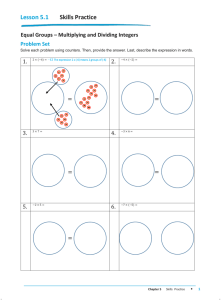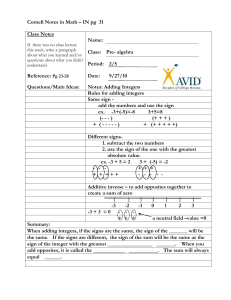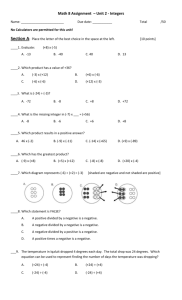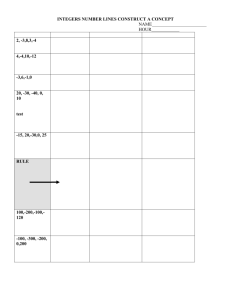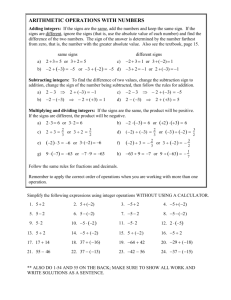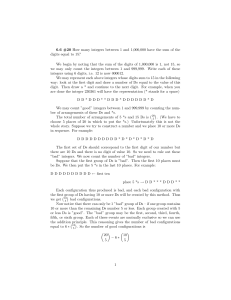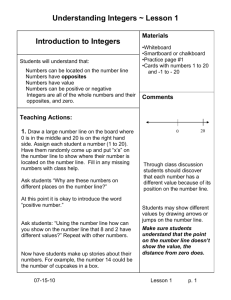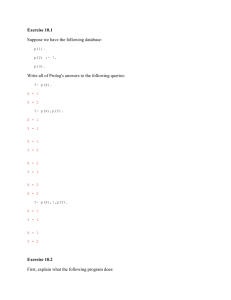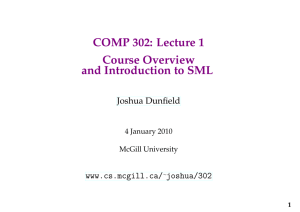Problem Set 7: Solutions
advertisement
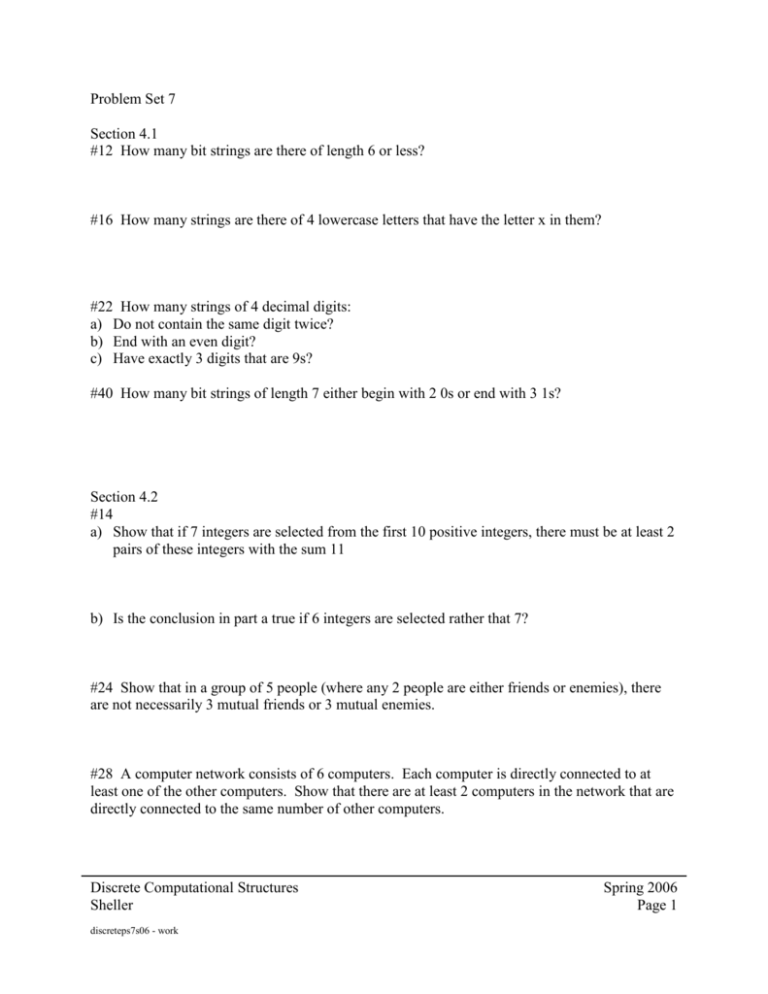
Problem Set 7 Section 4.1 #12 How many bit strings are there of length 6 or less? #16 How many strings are there of 4 lowercase letters that have the letter x in them? #22 How many strings of 4 decimal digits: a) Do not contain the same digit twice? b) End with an even digit? c) Have exactly 3 digits that are 9s? #40 How many bit strings of length 7 either begin with 2 0s or end with 3 1s? Section 4.2 #14 a) Show that if 7 integers are selected from the first 10 positive integers, there must be at least 2 pairs of these integers with the sum 11 b) Is the conclusion in part a true if 6 integers are selected rather that 7? #24 Show that in a group of 5 people (where any 2 people are either friends or enemies), there are not necessarily 3 mutual friends or 3 mutual enemies. #28 A computer network consists of 6 computers. Each computer is directly connected to at least one of the other computers. Show that there are at least 2 computers in the network that are directly connected to the same number of other computers. Discrete Computational Structures Sheller discreteps7s06 - work Spring 2006 Page 1 Section 4.3 #10 There are 6 different candidates for governor of a state. In how many different orders can the names of the candidates be printed on a ballot? #14 In how many ways can a set of two positive integers less than 100 be chosen? #28 A professor writes 40 discrete mathematics true/false questions. Of the statements in the questions, 17 are true. If the questions can be positioned in any order, how many different answer keys are possible? Section 4.4 #6 What is the coefficient of x7 in (1+x)11? #8 What is the coefficient of x8y9 in the expansion of (3x+2y)17? #12 The row of Pascal's triangle containing the binomial coefficients c(10,k), 0<=k<=10 is: 1 10 45 120 210 252 210 120 45 10 1 Use Pascal's identity to produce the row immediately following this row in Pascal's triangle Section 5.1 #18 What is the probability that a 5-card poker hand contains a straight flush, that is, 5 cards of the same suit of consecutive kinds? #26 Find the probability of selecting none of the correct 6 integers in the lotto, where the order in which these integers are selected does not matter, from the positive integers not exceeding: a) 40: b) 48: c) 56: d) 64: Discrete Computational Structures Sheller discreteps7s06 - work Spring 2006 Page 2
